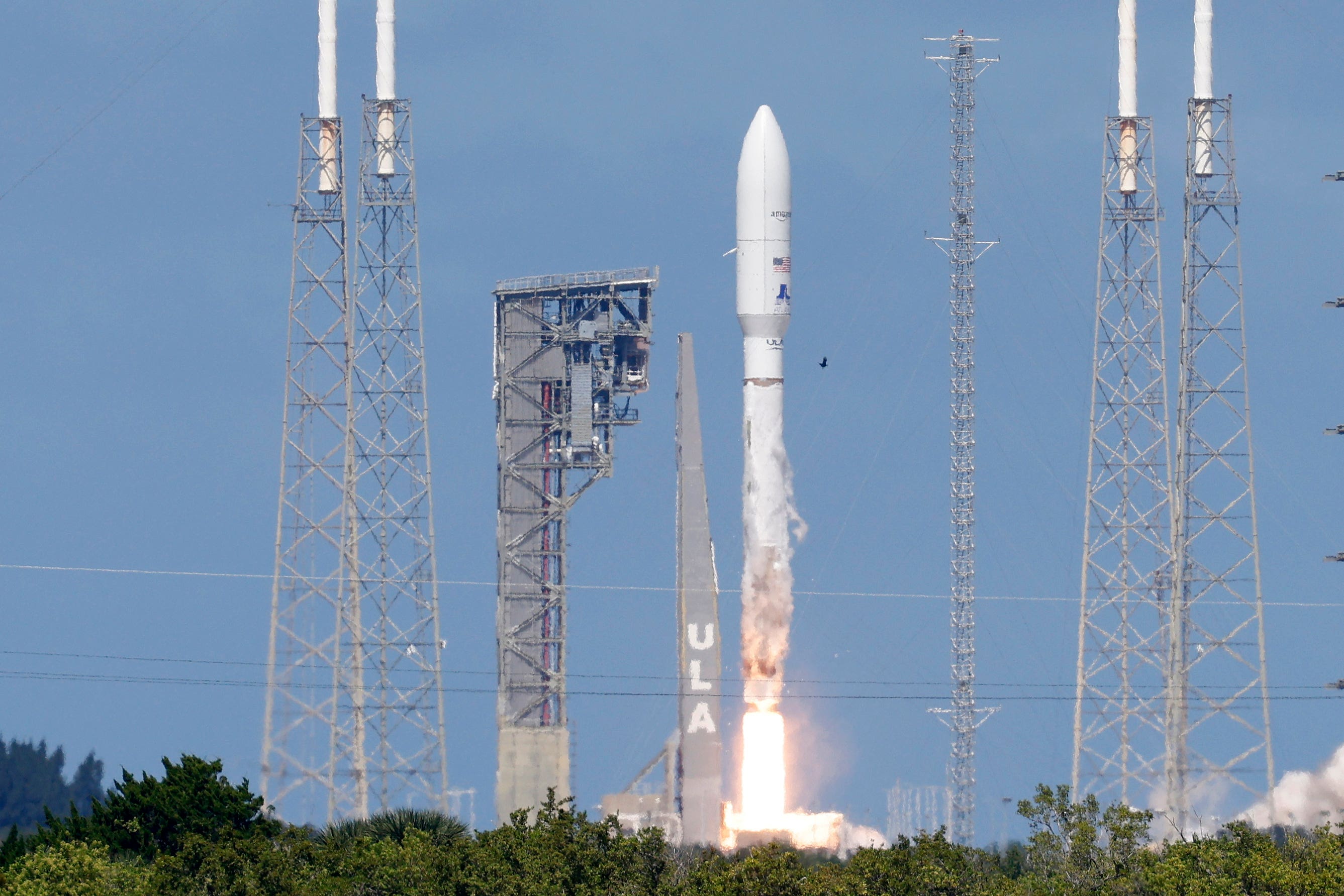Amazon launches first satellites into space
A rocket containing two test satellites blasted off in Florida as part of a mission to bring fast internet connection to all corners of the globe.

Your support helps us to tell the story
From reproductive rights to climate change to Big Tech, The Independent is on the ground when the story is developing. Whether it's investigating the financials of Elon Musk's pro-Trump PAC or producing our latest documentary, 'The A Word', which shines a light on the American women fighting for reproductive rights, we know how important it is to parse out the facts from the messaging.
At such a critical moment in US history, we need reporters on the ground. Your donation allows us to keep sending journalists to speak to both sides of the story.
The Independent is trusted by Americans across the entire political spectrum. And unlike many other quality news outlets, we choose not to lock Americans out of our reporting and analysis with paywalls. We believe quality journalism should be available to everyone, paid for by those who can afford it.
Your support makes all the difference.Amazon has launched its first satellites into space as part of a mission to bring fast internet connection to all corners of the globe.
An Atlas V rocket holding two test satellites blasted off from the Cape Canaveral Space Force Station in Florida at 2.06pm Eastern Time on Friday.
The launch is part of a mission called Project Kuiper to bring fast and affordable broadband services to communities around the world who are “unserved or underserved” by traditional internet providers.
The United Launch Alliance (ULA) confirmed the rocket took off safely, and they have now completed 158 successful launches.
ULA vice president of government and commercial programmes Gary Wentz said: “This initial launch is the first step in support of deployment of Amazon’s initiative to provide fast, affordable broadband service to unserved and underserved communities around the world.
“We have worked diligently in partnership with the Project Kuiper team to launch this important mission that will help connect the world.”
Jeff Bezos’s Amazon said it wants to help “bridge the digital divide” through the long-term initiative.
The project rivals billionaire entrepreneur Elon Musk’s Starlink, which uses satellites to beam a broadband signal down to Earth.
Starlink has about 5,000 satellites in space around the globe and the technology is being used as part of a UK Government trial to connect rural homes and isolated areas to better internet service.
Amazon said its prototype satellites, KuiperSat-1 and KuiperSat-2, are the first iterations of more than 3,200 satellites it plans to make and deploy over the next six years.
Rajeev Badyal, Project Kuiper’s vice president of technology, said: “We’ve done extensive testing here in our lab and have a high degree of confidence in our satellite design, but there’s no substitute for on-orbit testing.
“This is Amazon’s first time putting satellites into space, and we’re going to learn an incredible amount regardless of how the mission unfolds.”
The series of tests will add to years of data collected from lab and field testing, the group said.
At the end of the mission, which will involve extensive tests of the satellites in space and the network on the ground, it plans to “actively de-orbit” both satellites before they ultimately burn up in the Earth’s atmosphere.
This is part of the group’s commitment to space safety, Amazon said.
Project Kuiper, which began in 2018, is aiming for the broadband service to work for its earliest customers by the end of 2024.
By July 2026, it should have half of its entire satellite network running.